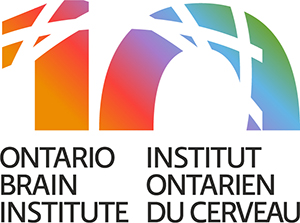TORONTO, Nov. 21, 2016 /CNW/ - For the first time in North America, the public, caregivers, and professionals who are interested in the well-being of people with neurodevelopmental disorders can shape research about their diagnosis, therapies, and care using the James Lind Alliance method.
The Ontario Brain Institute (OBI), the Province of Ontario Neurodevelopmental Disorder (POND) Network, and the James Lind Alliance in Great Britain will conduct a public survey to help researchers and the organizations who fund them ensure their work focuses on the priorities of people who actually live with a neurodevelopmental disorder like autism, Down syndrome or ADHD.*
The survey launches today and will be open for approximately three months.
Details of the online survey are at: http://www.braininstitute.ca/NDDpriorities. Anyone who wants to have their say can simply fill in the survey at: http://www.braininstitute.ca/survey .
"Involving patients, caregivers, and health professionals in what research tries to discover is a new and vital direction in research and healthcare. Our mandate is to ensure that the people who benefit from research—the patients, their loved ones, and caregivers—have a real say in the questions it seeks to answer," said OBI's President and Scientific Director, Dr. Tom Mikkelsen.
"Participating in something like this enables the researchers to get a broader and more generalized perspective on what the day-to-day life is like and that means they can then focus their research on tangible benefits. What matters to us as families and where we see the most benefit coming from their work," said Tara Vandertoorn, patient advocate and parent.
Today, OBI is launching a campaign to hear from you by driving survey participation via social media, e-mails, newsletters and public service print and broadcast ads.
The OBI survey follows the priority-setting process established by the James Lind Alliance in Great Britain in 2004. The Alliance creates priority-setting partnerships to bring together patients, caregivers, and clinicians to ensure that organizations who fund health research know what matters most to the people directly affected by that research.
About the Ontario Brain Institute:
The Ontario Brain Institute is the provincially-funded, not-for-profit research centre seeking to maximize the impact of neuroscience and establish Ontario as a world leader in brain research, commercialization and care. Convergent partnerships are created between researchers, clinicians, industry, patients and their advocates to foster discovery and deliver innovative products and services that improve the lives of those living with brain disorders. For more information visit: braininstitute.ca
* The disorders included are:
attention deficit hyperactivity disorder
autism spectrum disorder (including, Asperger's syndrome, childhood disintegrative disorder, pervasive development disorder – not otherwise specified)
Down syndrome
fragile X
intellectual disability
obsessive compulsive disorder
Rett syndrome
Tourette syndrome
learning disabilities
other genetic syndromes related to intellectual disabilities
SOURCE Ontario Brain Institute
Video with caption: "VIDEO: Tara Vandertoorn, parent and patient advocate, has questions about neurodevelopmental disorders. She wants to share hers with researchers and doctors and hopes that you will too.". Video available at: https://www.youtube.com/watch?v=IooIi5vsLcs

Teige Bourke, Communications Coordinator, Ontario Brain Institute, Email: [email protected], Office: 647-872-1226, Mobile: 343-333-3344

Share this article